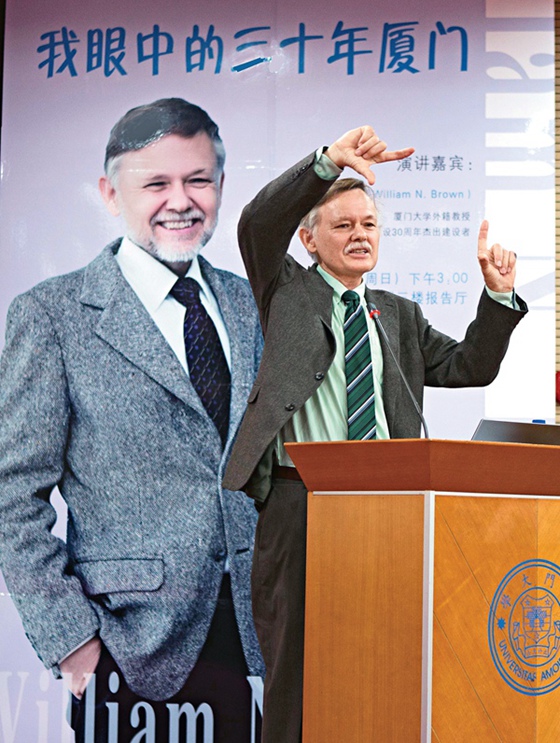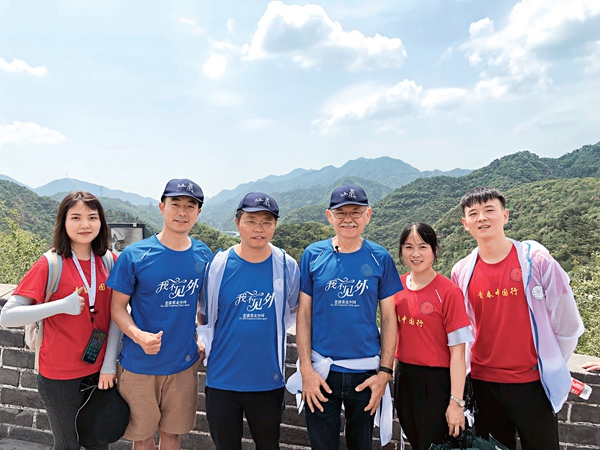Disseminating China's Huge Changes

"Modern and ancient, peace-loving, growing while greening — these are the words I would like to use to describe my overall impression of China. China's future is fairly predictable, because policies and practices are based on the country's systematic and scientific governance, led by its Party, the Communist Party of China (CPC)," says William N. Brown, a business professor from the United States, who works with Xiamen University, in Southeast China's Fujian Province.
In 1992, Brown became the first foreigner in Fujian Province to receive China's permanent residence permit. In addition to teaching, he has helped 13 Chinese cities, including Xiamen and its neighbor, Quanzhou, win medals in the International Awards for Livable Communities. "What surprised judges, during their evaluations, have been the emphasis and investments those Chinese cities have put into environmental protection. When they (the cities) made mistakes, they learned to improve," Brown recalls.
In October 2018, Brown's book, Off the Wall — How We Fell for China, was published. The book, composed of 47 letters, details the changes in Xiamen, and some other areas of China, from a foreigner's eyes. Upon completing his book, Brown sent a copy to Chinese President Xi Jinping, and he was surprised when he received a reply from Xi.

During a recent interview with Women of China, Brown said he expected China to continue to achieve its development goals in the coming years. "Unlike the China I moved to, back in 1988, life in this country today is so convenient and comfortable. I once joked with my friends, saying ‘Chinese had no money 30 years ago, but today, are still without much money,' because we are able to pay for everything with our cell phones," he says.
Brown believes education will continue to improve in China, especially education involving higher research and practical applications, as well as education provided in remote areas. He also believes China will improve its medical-treatment system, telecommunications and computers, and agriculture.
"Most importantly, the next step after alleviating absolute poverty is the country's rural revitalization. China has the holistic infrastructure to help people in the remotest areas. The country will improve the livelihood of its people, and it will help slow rampant and unsustainable urbanization, while benefiting the environment," Brown adds.
In fact, Brown is well-known to many of Xiamen's residents, who affectionately call him "Lao Pan," or "old Pan." He once described his deep ties with China as his "prearranged destiny." Lao Pan is no doubt an eyewitness to and disseminator of the huge changes in the development of China.
Photos from Interviewee
(Women of China)
Editor: Wang Shasha
Please understand that womenofchina.cn,a non-profit, information-communication website, cannot reach every writer before using articles and images. For copyright issues, please contact us by emailing: website@womenofchina.cn. The articles published and opinions expressed on this website represent the opinions of writers and are not necessarily shared by womenofchina.cn.

 京公网安备 11010102004314号
京公网安备 11010102004314号